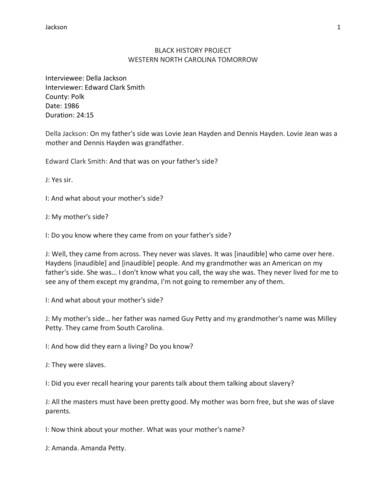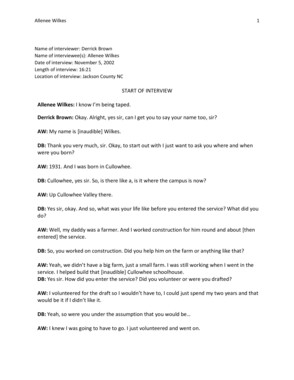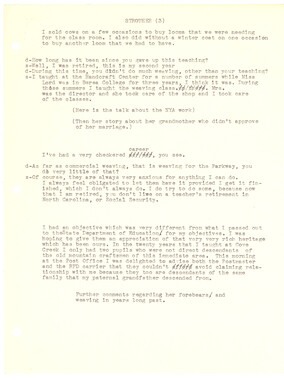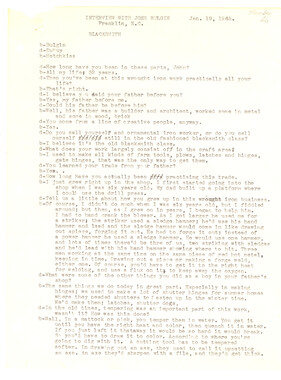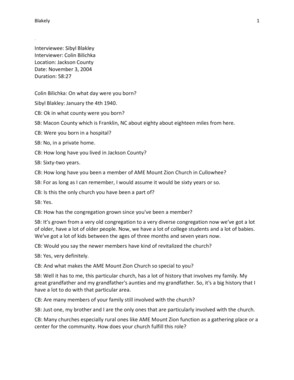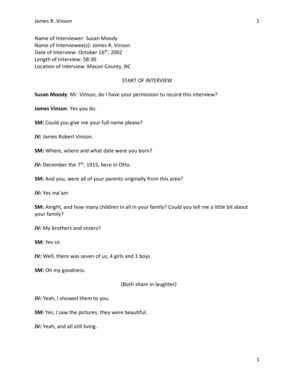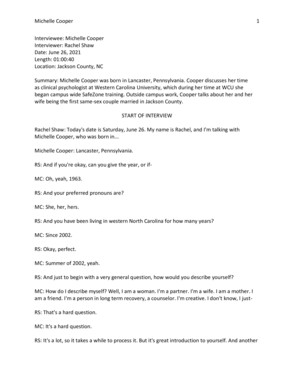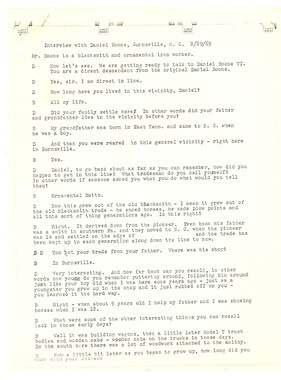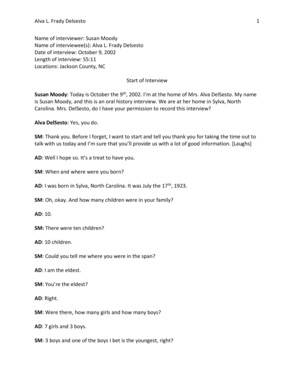Western Carolina University (20)
View all
- Canton Champion Fibre Company (2308)
- Cherokee Traditions (293)
- Civil War in Southern Appalachia (165)
- Craft Revival (1942)
- Great Smoky Mountains - A Park for America (2767)
- Highlights from Western Carolina University (430)
- Horace Kephart (941)
- Journeys Through Jackson (154)
- LGBTQIA+ Archive of Jackson County (19)
- Oral Histories of Western North Carolina (314)
- Picturing Appalachia (6679)
- Stories of Mountain Folk (413)
- Travel Western North Carolina (160)
- Western Carolina University Fine Art Museum Vitreograph Collection (129)
- Western Carolina University Herbarium (92)
- Western Carolina University: Making Memories (708)
- Western Carolina University Publications (2283)
- Western Carolina University Restricted Electronic Theses and Dissertations (146)
- Western North Carolina Regional Maps (71)
- World War II in Southern Appalachia (131)
University of North Carolina Asheville (6)
View all
- 1700s (1)
- 1860s (1)
- 1890s (1)
- 1900s (2)
- 1920s (2)
- 1930s (5)
- 1940s (12)
- 1950s (19)
- 1960s (35)
- 1970s (31)
- 1980s (16)
- 1990s (10)
- 2000s (20)
- 2010s (24)
- 2020s (4)
- 1600s (0)
- 1800s (0)
- 1810s (0)
- 1820s (0)
- 1830s (0)
- 1840s (0)
- 1850s (0)
- 1870s (0)
- 1880s (0)
- 1910s (0)
- Appalachian Region, Southern (15)
- Asheville (N.C.) (11)
- Avery County (N.C.) (1)
- Buncombe County (N.C.) (55)
- Cherokee County (N.C.) (17)
- Clay County (N.C.) (2)
- Graham County (N.C.) (15)
- Great Smoky Mountains National Park (N.C. and Tenn.) (1)
- Haywood County (N.C.) (40)
- Henderson County (N.C.) (5)
- Jackson County (N.C.) (131)
- Knox County (Tenn.) (1)
- Macon County (N.C.) (17)
- Madison County (N.C.) (4)
- McDowell County (N.C.) (1)
- Mitchell County (N.C.) (5)
- Polk County (N.C.) (3)
- Qualla Boundary (6)
- Rutherford County (N.C.) (1)
- Swain County (N.C.) (30)
- Watauga County (N.C.) (2)
- Waynesville (N.C.) (1)
- Yancey County (N.C.) (3)
- Blount County (Tenn.) (0)
- Knoxville (Tenn.) (0)
- Lake Santeetlah (N.C.) (0)
- Transylvania County (N.C.) (0)
- Interviews (314)
- Manuscripts (documents) (3)
- Personal Narratives (7)
- Photographs (4)
- Sound Recordings (308)
- Transcripts (216)
- Aerial Photographs (0)
- Aerial Views (0)
- Albums (books) (0)
- Articles (0)
- Artifacts (object Genre) (0)
- Biography (general Genre) (0)
- Cards (information Artifacts) (0)
- Clippings (information Artifacts) (0)
- Crafts (art Genres) (0)
- Depictions (visual Works) (0)
- Design Drawings (0)
- Drawings (visual Works) (0)
- Envelopes (0)
- Facsimiles (reproductions) (0)
- Fiction (general Genre) (0)
- Financial Records (0)
- Fliers (printed Matter) (0)
- Glass Plate Negatives (0)
- Guidebooks (0)
- Internegatives (0)
- Land Surveys (0)
- Letters (correspondence) (0)
- Maps (documents) (0)
- Memorandums (0)
- Minutes (administrative Records) (0)
- Negatives (photographs) (0)
- Newsletters (0)
- Newspapers (0)
- Occupation Currency (0)
- Paintings (visual Works) (0)
- Pen And Ink Drawings (0)
- Periodicals (0)
- Plans (maps) (0)
- Poetry (0)
- Portraits (0)
- Postcards (0)
- Programs (documents) (0)
- Publications (documents) (0)
- Questionnaires (0)
- Scrapbooks (0)
- Sheet Music (0)
- Slides (photographs) (0)
- Specimens (0)
- Speeches (documents) (0)
- Text Messages (0)
- Tintypes (photographs) (0)
- Video Recordings (physical Artifacts) (0)
- Vitreographs (0)
- WCU Mountain Heritage Center Oral Histories (25)
- WCU Oral History Collection - Mountain People, Mountain Lives (71)
- Western North Carolina Tomorrow Black Oral History Project (69)
- A.L. Ensley Collection (0)
- Appalachian Industrial School Records (0)
- Appalachian National Park Association Records (0)
- Axley-Meroney Collection (0)
- Bayard Wootten Photograph Collection (0)
- Bethel Rural Community Organization Collection (0)
- Blumer Collection (0)
- C.W. Slagle Collection (0)
- Canton Area Historical Museum (0)
- Carlos C. Campbell Collection (0)
- Cataloochee History Project (0)
- Cherokee Studies Collection (0)
- Daisy Dame Photograph Album (0)
- Daniel Boone VI Collection (0)
- Doris Ulmann Photograph Collection (0)
- Elizabeth H. Lasley Collection (0)
- Elizabeth Woolworth Szold Fleharty Collection (0)
- Frank Fry Collection (0)
- George Masa Collection (0)
- Gideon Laney Collection (0)
- Hazel Scarborough Collection (0)
- Hiram C. Wilburn Papers (0)
- Historic Photographs Collection (0)
- Horace Kephart Collection (0)
- Humbard Collection (0)
- Hunter and Weaver Families Collection (0)
- I. D. Blumenthal Collection (0)
- Isadora Williams Collection (0)
- Jesse Bryson Stalcup Collection (0)
- Jim Thompson Collection (0)
- John B. Battle Collection (0)
- John C. Campbell Folk School Records (0)
- John Parris Collection (0)
- Judaculla Rock project (0)
- Kelly Bennett Collection (0)
- Love Family Papers (0)
- Major Wiley Parris Civil War Letters (0)
- Map Collection (0)
- McFee-Misemer Civil War Letters (0)
- Mountain Heritage Center Collection (0)
- Norburn - Robertson - Thomson Families Collection (0)
- Pauline Hood Collection (0)
- Pre-Guild Collection (0)
- Qualla Arts and Crafts Mutual Collection (0)
- R.A. Romanes Collection (0)
- Rosser H. Taylor Collection (0)
- Samuel Robert Owens Collection (0)
- Sara Madison Collection (0)
- Sherrill Studio Photo Collection (0)
- Smoky Mountains Hiking Club Collection (0)
- Stories of Mountain Folk - Radio Programs (0)
- The Reporter, Western Carolina University (0)
- Venoy and Elizabeth Reed Collection (0)
- WCU Gender and Sexuality Oral History Project (0)
- WCU Students Newspapers Collection (0)
- William Williams Stringfield Collection (0)
- Zebulon Weaver Collection (0)
- African Americans (97)
- Artisans (5)
- Cherokee pottery (1)
- Cherokee women (1)
- College student newspapers and periodicals (4)
- Education (3)
- Floods (13)
- Folk music (3)
- Great Smoky Mountains National Park (N.C. and Tenn.) (1)
- Hunting (1)
- Mines and mineral resources (2)
- Rural electrification -- North Carolina, Western (2)
- School integration -- Southern States (2)
- Segregation -- North Carolina, Western (5)
- Slavery (5)
- Sports (2)
- Storytelling (3)
- World War, 1939-1945 (3)
- Appalachian Trail (0)
- Cherokee art (0)
- Cherokee artists -- North Carolina (0)
- Cherokee language (0)
- Church buildings (0)
- Civilian Conservation Corps (U.S.) (0)
- Dams (0)
- Dance (0)
- Forced removal, 1813-1903 (0)
- Forest conservation (0)
- Forests and forestry (0)
- Gender nonconformity (0)
- Landscape photography (0)
- Logging (0)
- Maps (0)
- North Carolina -- Maps (0)
- Paper industry (0)
- Postcards (0)
- Pottery (0)
- Railroad trains (0)
- Waterfalls -- Great Smoky Mountains (N.C. and Tenn.) (0)
- Weaving -- Appalachian Region, Southern (0)
- Wood-carving -- Appalachian Region, Southern (0)
- Sound (308)
- StillImage (4)
- Text (219)
- MovingImage (0)
Interview with Della Jackson
Item
Item’s are ‘child’ level descriptions to ‘parent’ objects, (e.g. one page of a whole book).
-
-
Jackson 1 BLACK HISTORY PROJECT WESTERN NORTH CAROLINA TOMORROW Interviewee: Della Jackson Interviewer: Edward Clark Smith County: Polk Date: 1986 Duration: 24:15 Della Jackson: On my father's side was Lovie Jean Hayden and Dennis Hayden. Lovie Jean was a mother and Dennis Hayden was grandfather. Edward Clark Smith: And that was on your father's side? J: Yes sir. I: And what about your mother's side? J: My mother's side? I: Do you know where they came from on your father's side? J: Well, they came from across. They never was slaves. It was [inaudible] who came over here. Haydens [inaudible] and [inaudible] people. And my grandmother was an American on my father's side. She was… I don’t know what you call, the way she was. They never lived for me to see any of them except my grandma, I'm not going to remember any of them. I: And what about your mother's side? J: My mother's side… her father was named Guy Petty and my grandmother's name was Milley Petty. They came from South Carolina. I: And how did they earn a living? Do you know? J: They were slaves. I: Did you ever recall hearing your parents talk about them talking about slavery? J: All the masters must have been pretty good. My mother was born free, but she was of slave parents. I: Now think about your mother. What was your mother's name? J: Amanda. Amanda Petty. Jackson 2 I: Now where was she from? J: Gaffney, South Carolina. I: And that was where she was born? J: Yes. I: And what was your father's name? J: Robert. Robert Hayden. I: And he was from Old Fort? J: Yes. I: How did they meet? J: They met in Asheville at a boarding house or something like that. It was a hotel. They were both working there. I: So, where were you born? J: I was born right here in Mill Spring. All us children born in Mill Spring. I: So your mother left Gaffney and went Asheville to work? J: Yes, and they met there while working. I: And came here because you were born? J: But other children were born in Old Fort or somewhere before they came here to Mill Spring but I was ( .. ?) I: But you were born here in Mill Spring? J: Yes. I: What did they do to earn a living while they lived here? J: Well, my mother didn't work out. We had a little farm. My father worked. He was a fireman of a boiler. He would boil work at sawmills any, any engine that required firing up to operate and the engines were run by steam. I guess at that time, water or steam or something anyway. Jackson 3 Had to have fire with. And he would go early in the morning and fire up the boilers before the other men had to come to work and it became hot and ready to go. I: And your mother and the children worked on the farm? J: Worked on the farm, that's right. I: What was that like for you growing up? J: Well, I didn't know any better. I thought I had a happy life. I guess it was pretty hard on me. I was the boy on the farm because I was five years younger than any of the rest of the children and so that means I remained home and worked with the grandchildren on the farm and I was the boy I'd plowed the fields and hauled wood and drove wagons and anything that needed to be done I did it. I could plow a two-horse plow turning all day before I was 18. While I could work I did, until I went off to school. I: Well, how as children did you all entertain yourselves? J: Oh, we'd just play with one another. Play house and we played school, played ball, played anything that we the vision we could provide a way of playing. We got rag balls and stick bats and so forth. I: Now what was going to school like? J: It was fine. We went to school at Stony Knoll and at that time all the schools for blacks in the county were one-room, one-teacher schools up until I began teaching. When I began teaching, I taught in a one-room school and had as many as 68 children in one room and 7 grades. I: But now before we get to that, when you were going ... J: Well, I went in the same school that I was first taught in. I taught three years in the same school I went to. I: Has it changed? J: The school? I: Yes. J: Oh, the teachers changed. The school was the same building and all, additions, subtractions. Just a one room and a black board and a pot-belly stove and we'd build our own fires and I'd pick up trash and started the fire in the morning when we got there with the teacher and we'd be freezing and we'd warm ourselves and by the time we got warm, it would be time to go home. Jackson 4 I: How far did you live from the school? J: From here to.. did you come up down 108? I: mhmm. J: Well you see that white fence as you came to the top of the hill coming out 108 you look up the hill and you saw white? There's where the school was. I walked from here to there. I: How long did you go to school? I mean how long was a school year? J: Well, children didn't get to go to school for many months then. They had to work on the farm and it was about November before they could start to school. November through March or April. The schools were 6 months a first and they got to go about five and six before the six. They went to school every day though. I: For the six months. J: Yes. I: Who were some of your teachers that you remember back then? J: J. D. Jones, our reverend; B.H. Deck, Miles Holbert, [Gramming] Miles, a woman; Mamie Jones, a woman; them some good teachers. I: What kind of things were taught in the school? J: We had reading and writing, arithmetic, geography, oh maybe some science, I don't know, history. Those were the principal things. I: What about white people? Did they go to school six months? J: Yes, because that was the school year. I: That was for everybody. Everybody was six months. J: They moved it up to eight months, and then nine months. I: So it was six months for everybody when you started? J: Yes, when I started school myself. I: What were some of the responsibilities that you had at home as a young child like that? Jackson 5 J: I minded the cows mostly. We didn't have pastures. We had three cows and I could train those cows to go down between a row of corn and eat the grass and not bite the corn. I: You could do that? J: I could do that. I: How did you do it? J: I don't know. I just ... I: They just would follow you, right? J: I just learned to do it because I had to take care of them. I could call their names and they wouldn't bite it. They would just raise their head up and just call their name and they would stop, don't do that. I remember very well around the road here about 1/2 a mile was what they called a bone yard that had been horses and things laid out there and their bones were bare. It was a very, very rich place so we would have to get the cows full before Sunday school on Sunday morning. And I'd take a chain and carry three… I didn't carry them, drive three cows over there and mind them and get them full and bring them back home before, then get ready to go to church on time--Sunday school at 10:00. In summer the days are long like I could carry three of them with chains at one time. I: You had to work then? J: It was fun to me. I didn't realize that I was working. As I look back I'd know it was work, but at that time I'd be singing or doing something while the cows were eating and just watch that they don't bite something that they shouldn't. I: And you all as a family attended church? J: All of us, always. I: As a child, what did the church… well, the question I'm trying to ask you is in the church then and the church now as you look back at that church in perspective, is there any difference? J: Oh yes. It was much better in those earlier days. The people were more religious and more people attended. It was just really interesting. My mother and father were both very religious and they were as well educated as anybody in the community. They had lots of good books and they would read and discuss the Bible at home and we were just a close-knit family and my father was very protective of his family. Jackson 6 I: What are some of the differences you think other than… do you remember any of the customs that were in the church then that we don't practice now? J: Prayer meetings, class-leader meetings, and they would have a church conference and try a person if he didn't do right and turn him out of the church. They wouldn't turn anyone out now don't matter what they do. I: They actually would turn them out? J: They would actually turn them out and they'd have to confess and come back, you know to the church and ask forgiveness. They'd ask the Lord to forgive them and ask the church to forgive them and come back to the church and we had a good church in attendance. I: Did you ever see that done? J: I've seen it done. I've sat as a child, I've sat in the conference and heard them discuss the problems. It was good for the people. I: You’re right, it doesn't happen now. J: No, it doesn't happen. I: Can you remember any events or a major event or disaster while you were that age that affected you all like maybe a flood or anything that affected you and your family growing up? J; No, I don't. I remember once we lived over about two miles from here, it was called Possum Hollow. And my parents were living over there and farming another man's farm and I was about six I guess and a hail storm came. Big old balls to me it looked like as big as your fist, but it wasn’t that big, they were great big balls of hail and destroyed the barn and the crops and everything. I: How did that affect you? J: I don't even know. I couldn't ... I: You were so young? J: So young to know that they had happened. My parents were people who never complained about things, you know. They didn't talk about the neighbors and they didn't complain. If things went wrong you wouldn't know it. They kept it among themselves. They didn't discuss it among the children in their hearing and I thought life was very happy. [I didn’t have anything] I thought we were rich! [laugh] I: Did any of your brothers or sisters get more education than you? Jackson 7 J: No. I was the only one who went to college. I even finished high school because we didn't have a high school in the county. I: After you finished the school you started at, where did you go from there? J: I went to Asheville, Allen Home High School. I: How old were you? J: Oh, eighteen, I reckon because we just go back to school. I: How did you hear about the school? J: Well, we had a teacher from Asheville during my last year in school here. We'd just go to school and go to school until you'd get tired of going in the elementary school because there was nowhere else to go. So, I had to repeat seventh grade I don't know how many times. So much so that when I went to high school I finished in three years. This teacher, Miss Gertie Mae Manse, was from Asheville and when she taught Stony Knoll she said you don't need to go to school here anymore and she told us about the school there. So mother contacted a banker that, she was running a hand laundry at that time and she was acquainted with this banker and he let us have money enough for me to start school. Then after I got the first year I worked my way the rest of the time. I: Now you heard about Allen through ...? J: Through my teacher, Miss Mance, Gerty Mae Mance. I: How did you go to Asheville? How did you travel up to Asheville? J: Oh, we'd get somebody's car and take us. I would live up there. It was a boarding school. I would stay there but going backwards and forwards. I: What kind of school was it? J: It carried you through high school and then they added a teacher-training department that trained the teacher and when she finished that department, she would get a Class A Certificate from North Carolina. I: How many years did you go there? J: I went three years in high school and one year teacher training. I: At Allen? Jackson 8 J: At Allen. I: What was Asheville like when you first came there? J: Oh, we were not too much in the city to know about it much. But to me it was a great big city because I went from, you know, here to there and we would go to the different hotels and sing and I'd recite Dunbar selections, you know and all of that. It was exciting and .... I: What did you do after you finished at Allen? J: Well, I came back home. I intended to go to college, but my father died that same year that I finished. I had the Class A Certificate. I started teaching at my home and he died before I finished the first year. So I just gave up going to college straight through and got extensions and so forth and took care of my mother and in… let's see that was '27 and in '30 I got married and then began having children. My first husband died of a heart attack in six years after we were married so I had three children. I had two children, the baby was born a month after he died. I: So, you ah .... J: So, I taught and went to school and took care of Mother and raised my children. I: And you're saying that when you came back from Asheville from Allen, that was when you started teaching at the same school that you had finished at? J: That's right, and I taught three years there then they started moving me around the county I taught in five different schools in the county. I: There were five schools for black children? J: No, no. I taught first at Stony Knoll, then at Pea Ridge, then at Union Grove, and then at Edmund Embury at Tryon, then back to Stony Knoll and Union Grove, and Cobb Elementary. That was when all the six schools were consolidated into one black school, elementary school in the county. And I taught there 15 years and had a heart attack and I stayed out of school two years. Then the schools became integrated and all the children went to Polk Central High School over here at Mills Spring. The children were quite confused and the superintendent came out and told me we want you in the school, if you can't move and I couldn't move when I first got there. So, I went over there and taught there three years and retired from high school. I: Now, but I was looking for Johnson C. Smith. J: Oh, Johnson C. Smith! That's summer school in extension. I earned the other two years in summer school summer extension. Then I went to North Carolina College in Durham and got my masters straight through. Jackson 9 I: What year did you do that? J: 1956, '55 or '56. I: Now as you were growing up and during those years what were, say in Mill Spring, what were relationships like between black and white people? J: Well, they got along fairly well in most instances. There were a few families who had differences, we might say. For example, here's a white boy over here would make a group of black boys walk up and down the road and sing for them or dance for them and they didn't know to jump on them and beat him up. They just did that. There was no conflict because they just did that and well they've always felt they were better than anybody else. You know they still do that, but no major problems among them that I can remember. I: Do you remember any historical, not necessarily historical, but do you remember any holidays that black people celebrated that were just celebrated by black folks? J: Not that I know of. We did the Fourth of July, Christmas and Easter and all. Thanksgiving, but not any birthdays. We would go to school. I: Now when you were growing up and I noticed that you kept pressing on for education. J: That was my goal and .... I: What gave you that desire? J: I don't know. I always liked studying. I still like studying. I did a course in legal terminology last year over here with the senior citizens at the college. I like to study. I'm doing Revelations Seminar now. I: What did you teach in school? What were the avenues that you taught in? J: My training specifically was with elementary school department, but I've taught everything from preschool from [inaudible] child development to 12th grade. I: What did you like teaching most, which subject? J: English and math. I: That was what you preferred? J: Well, I liked all of them but those were my--I just loved them. [inaudible] Jackson 10 I: Did you find teaching challenging? You found it very challenging? J: Yes, it was challenging and satisfying. I: Now Ms. Jackson, tell me about your life in the community. It seems like everybody, all you have to do is say Della Jackson and everybody points in which direction to go. They really respect you. How long ago did you get involved in community affairs? Like all the organizations that you are a member of, the Agricultural Extension, when did you begin that? J: Well, those organizations, those civic and organizations I did principally after I stopped teaching about ’66, ‘62, '63 or something like that. But we had organizations all through my teaching you know. I belong to all the educational organizations, all of my professional organizations and we had community clubs and different things like that in the community. And the library was started in 1937. That's my hobby and I worked at it all these 50 years in addition to all the other things. I: So, you were there when the library started? J: Oh, I started it. It's my hobby, my hobby. Everybody's helped as I’ve been going along and I'd ask for help and they'd help but nobody initiated anything but ah. So we have six acres of ground, our community building, the library, and a conference room. That conference room came to us because a man and his wife lived here in Mill Spring and they'd always been interested in the library and visited it often and they made contributions out of it, and a lot of other things they gave to the library. So, when they died they left it in their will one-fourth interest for the Stony Knoll library after their remaining estate and so they wanted us to… they gave us all of his books, and bookcases, and a set of encyclopedias that he wanted to get rebound and we did that and we got some of our special old books rebound and then we took money enough to build a 20' x 20' room in memory of those two people and furnished it as a conference room.
Object
Object’s are ‘parent’ level descriptions to ‘children’ items, (e.g. a book with pages).
-
Della Jackson is interviewed by Edward Clark Smith in 1986 as a part of the Western North Carolina Tomorrow Black Oral History Project. Born in 1905, Jackson talks about growing up in Mill Spring where she worked hard on the farm, but didn’t realize it was work until she was older. She attended Stony Knoll School repeating the seventh grade until a teacher encouraged her to go to Allen Home High School. She eventually went to college and earned her Master’s degree. She was a teacher at Stony Knoll where at one point she had 68 children in 7 different grades at once. Jackson was very involved in her community and founded the Stony Knoll Community Library in 1937.
-
